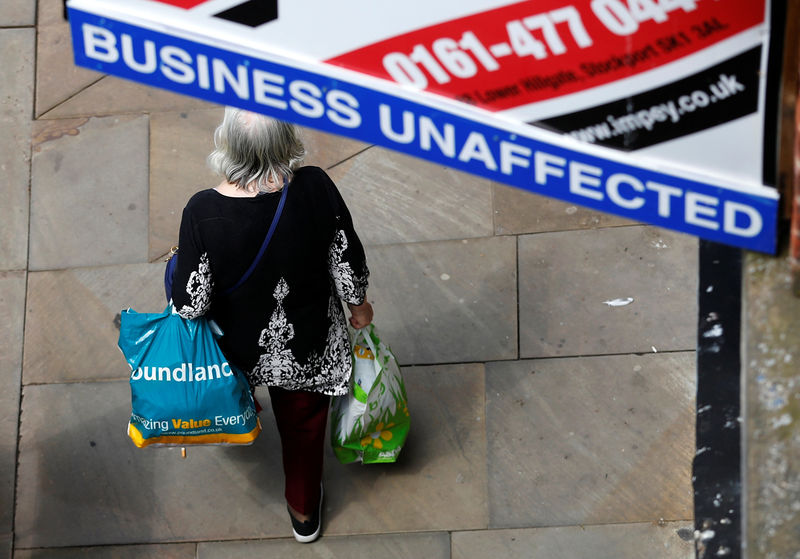By Andy Bruce and David Milliken
LONDON (Reuters) - British factories had their worst month in five-and-a-half years in April, suggesting the economy's weak start to 2018 has persisted and lowering the likelihood of the Bank of England raising interest rates again any time soon.
Sterling slid as data showed the biggest fall in factory output since 2012 due to tepid demand at home and abroad.
The Office for National Statistics also said Britain posted its biggest trade deficit since September 2016.
"The rebound in GDP as a whole in Q2, if there is one, could be pretty subdued and it certainly questions the likelihood of another rate increase in August," Investec economist Philip Shaw said.
Britain's economy slowed sharply last year, even as much of the rest of the world picked up speed, as the 2016 Brexit vote left consumers with higher inflation and companies turned cautious about investment. Things got worse in early 2018 but the BoE said the slump was probably mostly due to cold weather.
Monday's figures did little to support comments last week by BoE Deputy Governor Dave Ramsden who said data until that point suggested the economy's weak start to 2018 would probably prove temporary.
The BoE is looking for evidence that the economy is on a firmer footing before it resumes raising rates.
Britain's economy probably grew only 0.2 percent in the three months to May, the National Institute of Economic and Social Research think tank said.
Manufacturing output dropped by 1.4 percent in April after a 0.1 percent decline in March, the biggest month-on-month fall since October 2012, the ONS said.
The decline was bigger than any of the predictions in a Reuters poll of economists, and reflected lower production of steel for use in infrastructure and electrical machinery.
EXPORT WORRY
Higher oil production limited the monthly fall in the broader measure of industrial output. But annual output growth of 1.8 percent was weaker than all forecasts.
Business surveys last week suggested official data for May could show an upturn.
Weak data in Britain were in parallel with disappointing figures from the euro zone after strong growth at the end of 2017.
"But there does seem to be something more insidious going on -- perhaps a lack of confidence across industry due to trade concerns," Shaw said.
U.S. President Donald Trump stunned allies on Sunday by backing out of a joint communique agreed by Group of Seven leaders in Canada that had mentioned the need for "free, fair, and mutually beneficial trade".
Britain's goods trade deficit rose unexpectedly to 14.0 billion pounds ($18.8 billion), the second widest on record, hit by falls in exports of aircraft, pharmaceuticals and machinery.
British trade minister Liam Fox said the figures looked better on an annual basis.
"Far from the gloom some people report, today's trade figures show in the year to April 2018 the trade deficit narrowed by 6.7 billion pounds as overall exports rose by 7 percent," he said in a statement.
The figures also showed the construction sector failed to rebound. Output rose 0.5 percent month-on-month in April, undershooting all forecasts in the Reuters poll.
April capped the weakest three months for construction since mid-2012, and a fall in first-quarter construction orders outside the housing sector suggested little upturn soon.

"The construction industry dashboard is now a sea of warning lights," Blane Perrotton, managing director of property consultancy Naismiths said.